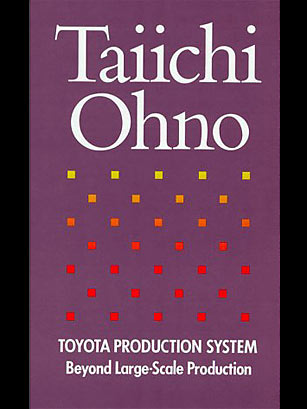
As the Internet of Things, (IoT), transforms manufacturing industries, cybersecurity for manufacturers becomes critical. Companies must ensure that their customer information and assets are protected in light of the increasing number of cyberattacks. Companies can respond to cyberattacks and remain secure by using the right technology. A physical security system with locks, cameras, and access cards can help ensure the safety of industrial equipment.
Kaspersky Labs says that manufacturers are the target of a third percent of all cybersecurity incidents. These threats are getting more complex and common. They include malware, phishing and ransomware. Manufacturers should protect their intellectual property and designs. It's important to devise a strategy that reduces the risk of cyberattacks.
Cybersecurity is vital for protecting confidential data and information such as customer orders and product specifications. A cybersecurity plan should also identify how to respond to a potential cyber attack, which can cost between $3 and $6 million. Companies are at risk of theft of intellectual property, data breaches and disruptions to production lines. Many manufacturers find it difficult to keep up with cyberattacks.

It is essential to invest in cybersecurity for manufacturers. This will help protect customer and employee data, as well as the company's reputation as well as its revenue. For your cybersecurity plan to be successful, you need to do a complete audit of all systems. This will help identify weaknesses and assess your readiness.
You can contact your local Manufacturing Executive Program Center (MEP) for advice and resources. Expert advice will be provided on how to protect your business from cyberattacks.
Not only is it important to conduct an audit of all your systems, but you should also create a backup plan. You must also make sure that your system functions properly by testing it regularly. By generating hard copies of key documents and creating a process for testing the effectiveness of your system, you can reduce the risk of an attack.
Many manufacturers have not implemented cybersecurity measures, including data standardization. Nearly half of OEMs use outdated or non-compliant software and hardware. However, increasing numbers of companies are investing digital technology. Digital technologies like cloud computing, sensor networks, and machine learning are changing the industry. Although the Internet of Things, (IoT), and increasing globalization have created new concerns, a cybersecurity strategy will ensure that your business is protected.

It is essential to understand the specific requirements of each manufacturing industry when designing a cybersecurity plan. Global manufacturers that have long supply chains need to adhere to specific standards depending on where they are located. Manufacturers of small or medium size often have simpler cybersecurity policies. No matter your company size, it is important to have a comprehensive plan in place to protect your business against cyberattacks.
Cybersecurity Framework for Manufacturers, a resource from the National Institute of Standards and Technology is designed to assist manufacturers in protecting their businesses from cyberattacks. This framework is a roadmap to manage cybersecurity activities in various sectors, including industrial manufacturing.
FAQ
What do you mean by warehouse?
Warehouses and storage facilities are where goods are kept before being sold. It can be an indoor space or an outdoor area. Sometimes, it can be both an indoor and outdoor space.
What are manufacturing and logistics?
Manufacturing is the act of producing goods from raw materials using machines and processes. Logistics encompasses the management of all aspects associated with supply chain activities such as procurement, production planning, distribution and inventory control. It also includes customer service. Manufacturing and logistics can often be grouped together to describe a larger term that covers both the creation of products, and the delivery of them to customers.
How important is automation in manufacturing?
Not only is automation important for manufacturers, but it's also vital for service providers. It allows them to offer services faster and more efficiently. It also helps to reduce costs and improve productivity.
What does manufacturing industry mean?
Manufacturing Industries are those businesses that make products for sale. These products are sold to consumers. To accomplish this goal, these companies employ a range of processes including distribution, sales, management, and production. They make goods from raw materials with machines and other equipment. This includes all types manufactured goods such as clothing, building materials, furniture, electronics, tools and machinery.
What are the 4 types of manufacturing?
Manufacturing is the process that transforms raw materials into useful products. Manufacturing involves many activities, including designing, building, testing and packaging, shipping, selling, service, and so on.
Is it possible to automate certain parts of manufacturing
Yes! Since ancient times, automation has been in existence. The Egyptians discovered the wheel thousands and years ago. We now use robots to help us with assembly lines.
There are many uses of robotics today in manufacturing. These include:
-
Robots for assembly line
-
Robot welding
-
Robot painting
-
Robotics inspection
-
Robots that produce products
There are many other examples of how manufacturing could benefit from automation. For instance, 3D printing allows us make custom products and not have to wait for months or even weeks to get them made.
What can I do to learn more about manufacturing?
Experience is the best way for you to learn about manufacturing. If that is not possible, you could always read books or view educational videos.
Statistics
- [54][55] These are the top 50 countries by the total value of manufacturing output in US dollars for its noted year according to World Bank.[56] (en.wikipedia.org)
- In the United States, for example, manufacturing makes up 15% of the economic output. (twi-global.com)
- You can multiply the result by 100 to get the total percent of monthly overhead. (investopedia.com)
- In 2021, an estimated 12.1 million Americans work in the manufacturing sector.6 (investopedia.com)
- According to the United Nations Industrial Development Organization (UNIDO), China is the top manufacturer worldwide by 2019 output, producing 28.7% of the total global manufacturing output, followed by the United States, Japan, Germany, and India.[52][53] (en.wikipedia.org)
External Links
How To
How to Use the Just-In-Time Method in Production
Just-in-time (JIT) is a method that is used to reduce costs and maximize efficiency in business processes. It allows you to get the right amount resources at the right time. This means that you only pay for what you actually use. Frederick Taylor, a 1900s foreman, first coined the term. He saw how overtime was paid to workers for work that was delayed. He decided that workers would be more productive if they had enough time to complete their work before they started to work.
The idea behind JIT is that you should plan ahead and have everything ready so you don't waste money. Look at your entire project, from start to end. Make sure you have enough resources in place to deal with any unexpected problems. You will have the resources and people to solve any problems you anticipate. This will prevent you from spending extra money on unnecessary things.
There are many types of JIT methods.
-
Demand-driven: This type of JIT allows you to order the parts/materials required for your project on a regular basis. This will let you track the amount of material left over after you've used it. This will let you know how long it will be to produce more.
-
Inventory-based: This is a type where you stock the materials required for your projects in advance. This allows for you to anticipate how much you can sell.
-
Project-driven: This means that you have enough money to pay for your project. When you know how much you need, you'll purchase the appropriate amount of materials.
-
Resource-based JIT: This is the most popular form of JIT. Here, you allocate certain resources based on demand. For example, if there is a lot of work coming in, you will have more people assigned to them. If you don’t have many orders you will assign less people to the work.
-
Cost-based: This is a similar approach to resource-based but you are not only concerned with how many people you have, but also how much each one costs.
-
Price-based: This is similar to cost-based but instead of looking at individual workers' salaries, you look at the total company price.
-
Material-based - This is a variant of cost-based. But instead of looking at the total company cost, you focus on how much raw material you spend per year.
-
Time-based JIT is another form of resource-based JIT. Instead of focusing on the cost of each employee, you will focus on the time it takes to complete a project.
-
Quality-based: This is yet another variation of resource-based JIT. Instead of worrying about the costs of each employee or how long it takes for something to be made, you should think about how quality your product is.
-
Value-based JIT : This is the newest type of JIT. In this instance, you are not concerned about the product's performance or meeting customer expectations. Instead, you focus on the added value that you provide to your market.
-
Stock-based is an inventory-based system that measures the number of items produced at any given moment. It's used when you want to maximize production while minimizing inventory.
-
Just-intime (JIT), planning is a combination JIT management and supply chain management. It is the process that schedules the delivery of components within a short time of their order. This is important as it reduces lead time and increases throughput.